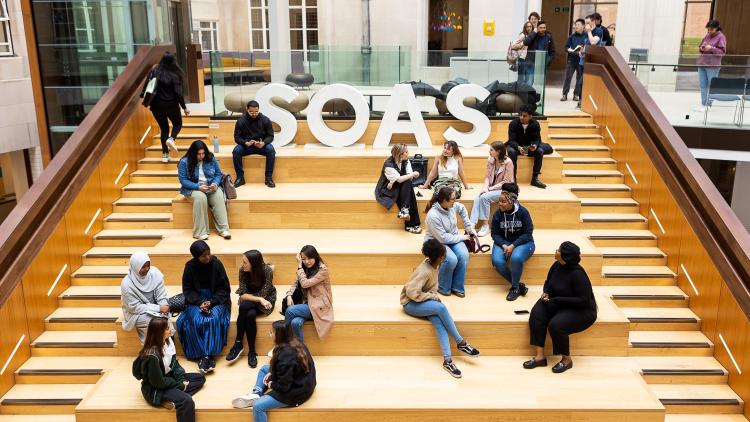SOAS Economists Present at Public Debt Management Conference at the World Bank


Alex Dryden, Dr Yuen Lo and Professor Ulrich Volz presented their research on the impact of disasters on sovereign debt at the 3rd Public Debt Management Conference hosted by the World Bank in Washington, DC on 3-4 October 2024.
The Conference was organised by the Public Debt Management Network, an initiative fostered by the OECD, the Italian Treasury and the World Bank which promotes building, sharing and developing knowledge on public debt management. The conference’s theme was “Risks and Challenges for Public Debt Management: Inflation, Markets and Climate”.
Alex Dryden, a Doctoral Research Fellow at the SOAS Centre for Sustainable Finance, presented a paper on “Natural Disasters, Sovereign Defaults & Debt Restructurings”. The study shows that over the last four decades, natural disasters have regularly preceded a sovereign default announcement. In addition, environmental catastrophes materially shape subsequent debt negotiations.
More ‘immediate’ natural disasters, such as hurricanes and earthquakes, often lead to smaller, faster debt restructurings. In comparison, drought-induced defaults often result in larger debt haircuts that take much longer to conclude with creditors.
Senior Research Fellow Dr Yuen Lo and Professor of Economics Ulrich Volz jointly presented their research on “The Impacts of Disasters on Capital Flows, International Reserves and Exchange Rates: Implications for Public Sector Financial Risk Management and Development Lenders”. Their study finds that poorer countries tend to experience significant capital outflows and a depreciation of the real effective exchange rate in the aftermath of major disasters.
Disasters therefore worsen foreign exchange risk and threaten the sustainability of international public debt, which for poor countries is predominantly denominated in US dollar or other international currencies.
The findings reinforce the need to address foreign exchange risk in vulnerable developing countries.
The SOAS Centre for Sustainable Finance has a strong track record in this area of research. A 2018 landmark study with the United Nations Environment Programme that was followed by several journal publications showed for the first time that climate-vulnerable developing countries have to pay a climate risk premium because of their vulnerability. A seminal study on Climate Change and Sovereign Risk published in 2020 systematically investigated how physical and transition risks can affect public finances and threaten public debt sustainability.
The SOAS Centre for Sustainable Finance has also been leading several capacity building initiatives aimed at strengthening the capabilities of ministries of finance and central banks in dealing with climate risks and scaling up climate investment. This includes the V20 Climate Prosperity Fellowship and the establishment of the University Network for Strengthening Macrofinancial Resilience to Climate and Environmental Change, the Secretariat of which is hosted by SOAS.
Researchers at the SOAS Centre for Sustainable Finance have been advising numerous governments, central banks and international organisations, including the Vulnerable Twenty (V20) Group of Ministers of Finance of the Climate Vulnerable Forum, the World Bank, the Asian Development Bank and various United Nations agencies, on how to analyse and address climate risks and enhance resilience.
Header image credit: Jacob Creswick via Unsplash.
About the Centre for Sustainable Finance
The SOAS Centre for Sustainable Finance aims to advance the transition to an equitable, low-carbon economy by providing a forum for interdisciplinary research and teaching on sustainable finance and investment.
Located in the SOAS Department of Economics, the centre seeks to enhance knowledge and understanding of sustainable finance in both the Global North and South and act as a focal point for policy debates in this area.
Centre members have convened major capacity building and executive training programmes in sustainable finance and climate risk for numerous central banks and commercial financial institutions. Centre members have also convened courses in climate negotiations, climate finance and sustainable finance for the UK FCDO and the UK Cabinet Office.




